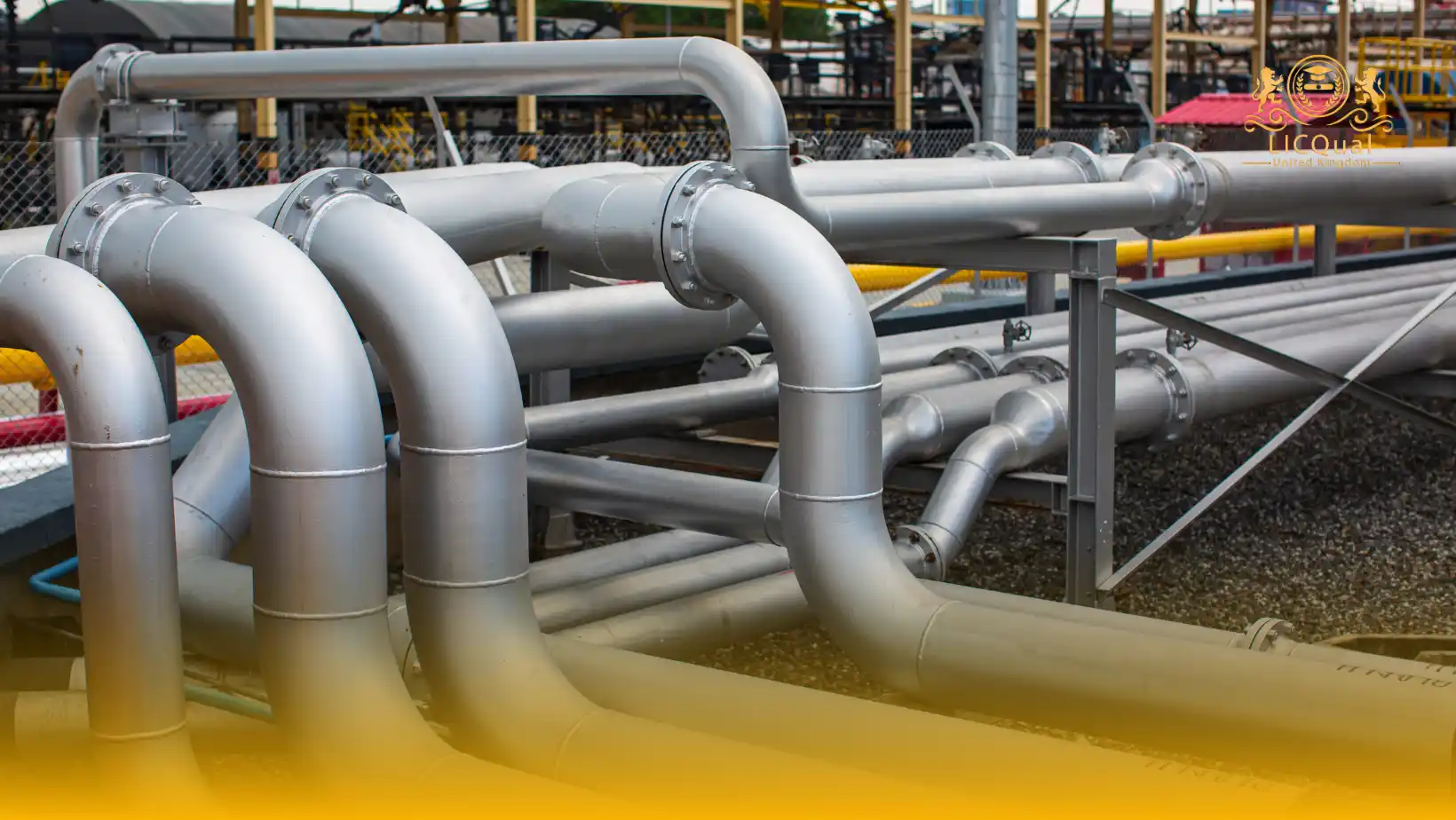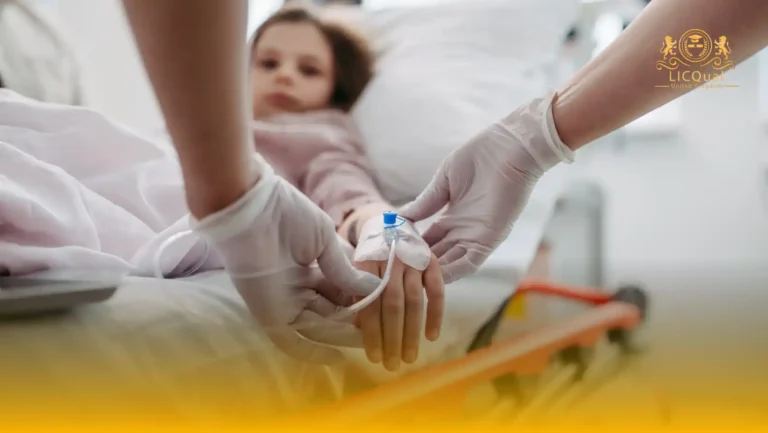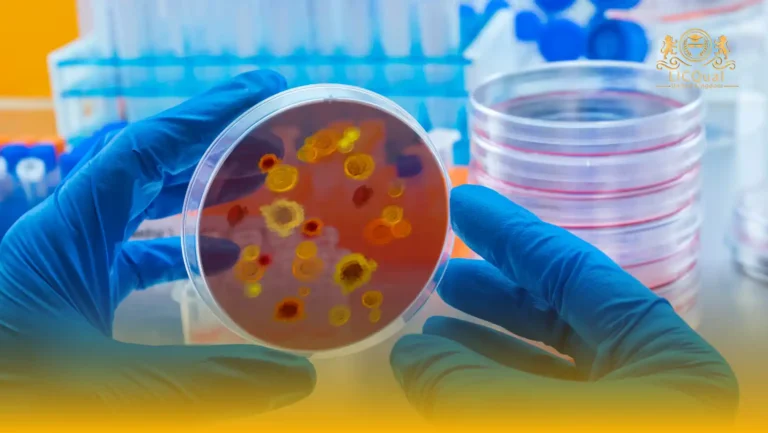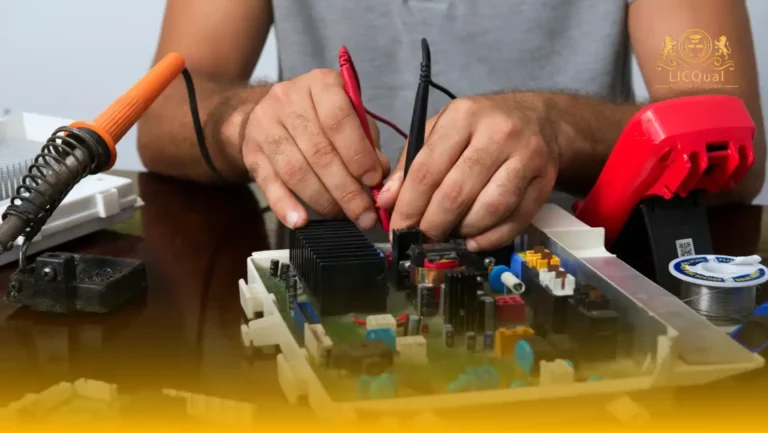Embark on a transformative journey with the LICQual Level 3 Diploma in Quality Control (QC) Piping, a globally recognized program crafted to elevate your expertise in the piping industry. This diploma is designed for aspiring and seasoned professionals seeking to master the art and science of quality control in piping systems.
Ideal for roles in oil and gas, construction, petrochemicals, and manufacturing, this course equips you with advanced skills to ensure piping projects meet rigorous safety, performance, and compliance standards. With a focus on practical, industry-relevant training, you’ll gain the confidence to excel as a quality control inspector, piping engineer, or supervisor, opening doors to rewarding career opportunities worldwide.
Delivered through engaging, accessible modules, the LICQual Level 3 Diploma combines theoretical knowledge with hands-on applications, guided by experienced industry professionals. From understanding piping systems to mastering inspection techniques and non-destructive testing, this course prepares you to tackle real-world challenges with precision. Flexible learning options, including online and blended formats, make it easy to balance your studies with your professional life.
The LICQual Level 3 Diploma in Quality Control (QC) Piping offers an in-depth exploration of quality control principles tailored to piping systems, empowering you to ensure excellence in high-stakes industries. This comprehensive program covers critical topics, including piping system design, material selection, fabrication quality control, visual and non-destructive testing (NDT) methods, and health, safety, and environmental practices.
You’ll also delve into advanced areas like risk assessment, slinging and lifting techniques, and compliance with international standards such as ASME, API, and ISO. Through practical exercises, case studies, and real-world simulations, you’ll develop the skills needed to identify defects, ensure structural integrity, and maintain project compliance.
This diploma is structured to accommodate both beginners and experienced professionals, with flexible learning formats to suit your schedule. Whether you’re aiming to advance in your current role, transition into the piping industry, or enhance your expertise in quality assurance, this course provides a robust foundation.
Upon completion, you’ll earn a prestigious LICQual diploma, recognized globally, that validates your ability to deliver high-quality piping solutions. Take the next step in your career and become a trusted expert in piping quality control with this industry-leading program.
Course Overview
Qualification Title
LICQual Level 3 Diploma in Quality Control (QC) Piping
Total Units
6
Total Credits
60
GLH
240
Qualification #
LICQ2200538
Qualification Specification
To enroll in the LICQual Level 3 Diploma in Quality Control (QC) Piping applicants must meet the following criteria:
|
Qualification# |
Unit Title |
Credits |
GLH |
|---|---|---|---|
|
LICQ2200538-1 |
Principles of Slinging and Lifting Equipment |
10 |
40 |
|
LICQ2200538-2 |
Risk Assessment and Safe Systems of Work for Lifting Operations |
10 |
40 |
|
LICQ2200538-3 |
Inspection, Maintenance, and Storage of Lifting Gear |
10 |
40 |
|
LICQ2200538-4 |
Understanding Load Characteristics and Centre of Gravity |
10 |
40 |
|
LICQ2200538-5 |
Slinging Techniques and Signal Communication |
10 |
40 |
|
LICQ2200538-6 |
Legal, Regulatory and Industry Standards for Slinging |
10 |
20 |
By the end of this course, applicants will be able to:
1. Piping Engineering Drawing and Isometric Interpretation
- Interpret piping engineering drawings and isometric diagrams accurately to identify components, dimensions, and specifications.
- Apply knowledge of symbols, annotations, and conventions used in piping drawings to support quality control processes.
- Translate isometric drawings into practical applications for piping fabrication, installation, and inspection.
- Evaluate the accuracy of piping layouts against project requirements to ensure compliance with design standards.
2. Advanced Piping Materials, Codes, and Standards
- Analyze the properties and applications of advanced piping materials, such as high-performance alloys and composites, for specific industrial environments.
- Interpret and apply international codes and standards (e.g., ASME B31.3, API 1104, ISO 9001) to ensure quality and compliance in piping projects.
- Select appropriate materials based on project requirements, considering factors like corrosion, pressure, and temperature resistance.
- Assess the impact of material selection on the long-term performance and safety of piping systems in quality control contexts.
3. Quality Control Procedures in Welding and Piping Fabrication
- Implement quality control procedures to monitor and verify welding and fabrication processes in piping systems.
- Identify common welding imperfections and fabrication errors, proposing corrective actions to meet quality standards.
- Apply quality assurance techniques to ensure welds and fabricated components comply with industry specifications and project requirements.
- Conduct audits of welding and fabrication processes to maintain consistency and traceability in piping quality control.
4. Non-Destructive Examination (NDE) Techniques and Applications
- Explain the principles and applications of advanced NDE techniques, such as ultrasonic testing, radiographic testing, and eddy current testing, for piping systems.
- Perform NDE procedures to detect internal and surface defects in piping components, ensuring structural integrity.
- Interpret NDE results accurately to assess the quality and reliability of piping systems in compliance with industry standards.
- Apply safety and procedural best practices during NDE to achieve consistent and accurate outcomes in quality control.
5. Documentation, Traceability, and Quality Records in Piping QC
- Develop and maintain comprehensive documentation for piping quality control, including inspection reports, test records, and material certifications.
- Ensure traceability of materials and components throughout the piping fabrication and installation process to meet regulatory requirements.
- Organize and manage quality records to support audits, compliance checks, and project accountability.
- Utilize digital tools and systems for efficient documentation and retrieval of quality control data in piping projects.
6. Project-Based Quality Assurance Practices in Piping Installations
- Design and implement quality assurance plans for piping installation projects, ensuring alignment with project specifications and standards.
- Monitor and evaluate piping installation processes to identify deviations and implement corrective measures promptly.
- Collaborate with project teams to integrate quality assurance practices into all phases of piping installation, from planning to completion.
- Analyze project outcomes to improve quality assurance processes and ensure continuous improvement in piping quality control.
This course is designed for:
- Aspiring Quality Control Inspectors:
Individuals who want to begin a professional career in piping inspection and quality control within industries such as oil & gas, construction, and manufacturing. - Junior Engineers and Technicians:
Those who have basic engineering or technical knowledge and wish to specialize in quality control practices related to piping systems. - Skilled Workers and Fabricators:
Tradespeople with experience in welding, pipe fitting, or fabrication seeking to move into inspection and quality assurance roles. - Supervisors and Foremen in Piping Projects:
Site supervisors or team leaders looking to formalize their knowledge and improve their quality monitoring responsibilities. - Fresh Graduates in Engineering Disciplines:
New diploma or degree holders in mechanical, industrial, or petroleum engineering aiming to build specialized qualifications in quality control. - HSE (Health, Safety, and Environment) Officers:
Professionals interested in understanding quality parameters to complement their safety oversight in piping projects. - Project Managers and Coordinators:
Managers who oversee piping and mechanical projects and want to ensure adherence to international QC standards and protocols. - Quality Assurance Professionals:
Individuals already working in quality assurance roles who want to expand their expertise specifically in piping systems. - Professionals Seeking International Opportunities:
Those aiming to work on international projects where certification in QC piping is often a mandatory requirement. - Technicians Looking for Career Progression:
Technicians wishing to upgrade their qualifications to access higher-level roles and better job prospects in the industry.
Assessment and Verification
All units within this qualification are subject to internal assessment by the approved centre and external verification by LICQual. The qualification follows a criterion-referenced assessment approach, ensuring that learners meet all specified learning outcomes.
To achieve a ‘Pass’ in any unit, learners must provide valid, sufficient, and authentic evidence demonstrating their attainment of all learning outcomes and compliance with the prescribed assessment criteria. The Assessor is responsible for evaluating the evidence and determining whether the learner has successfully met the required standards.
Assessors must maintain a clear and comprehensive audit trail, documenting the basis for their assessment decisions to ensure transparency, consistency, and compliance with quality assurance requirements.







